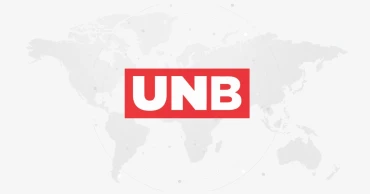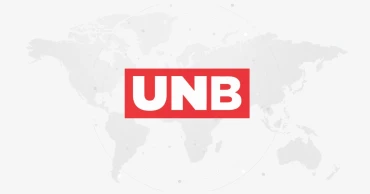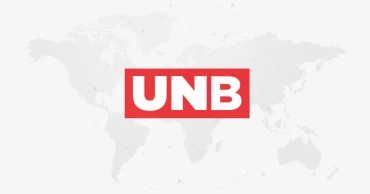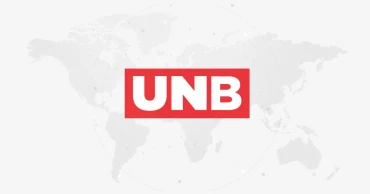money transfer
This is how RTGS funds transfer works
One of the prime functions of the banking system is to circulate money in the economy and settle payments. These payments can range between clients, foreign settlements, or between banks. Often the high-value, low-volume nature of payments requires higher security and instant process which are typically unavailable with traditional payment methods like NEFT, NPSB, or BACH. And that is where RTGS comes in. Let’s look at what RTGS is and how it works in the Bangladeshi banking system.
What is RTGS?
The term RTGS stands for "Real-Time Gross Settlement". It is a system devised for large-value interbank funds transfer operating in real-time. RTGS is different from the conventional funds transfer channel in the sense that it is instant and irrevocable.
Conventional transfer systems like BEFTN and NPSB use a batch clearance system that bundles several transactions and clears them at a time. These processes are time-consuming, often taking several hours to several days to settle a transaction.
Read More: Which are the Top 10 Strongest Currencies in the World in 2023?
While undertaking high-value transfers, there is always credit risk in the case of batch settlements. For example, a fund transfer failure in the case of BEFTN or NPSB may result in the payable sum being halted for up to 45 days in the gateway. In the case of large-value transactions, such risks may have serious financial consequences.
Why is RTGS better than other funds transfer methods?
There are several reasons why RTGS is a better funds transfer method, even if there are some caveats to it.
Speed
RTGS transfers are settled in real-time and in gross amounts. Well, what does this actually mean? In essence, unlike every batch transaction that happens between banks, RTGS is regulated by the central bank.
The central bank debits funds from Bank A and credits it in Bank B. This happens instantly without the need for the actual movement of money from Bank A to Bank B.
Read More: How to Build a Successful Company?
Security
RTGS transactions use Swift routing through the central bank. The central bank acts as the intermediary and uses a closed channel for transaction settlement. Moreover, the gross settlement amount ensures that there is no chance of transaction failure whatsoever.
High-value transfers
RTGS specializes in high-value and low-volume transactions. It is most commonly used for gross business transactions, government payments, and security settlements. However, being a high-value transfer means there is a very steep minimum transfer amount for each RTGS settlement.
Finality
Even though the central bank acts as the intermediary, the transactions completed through RTGS are final and irrevocable. Once the transaction is completed, it is impossible to reverse the transaction in any way by any party. This provides security against fraud or wire-tagging in transactions.
Read More: Silent Partner vs Investor in Business: Know the Difference, Pros and Cons
How does the RTGS system work?
The RTGS payment system works much like most other transaction systems with a few exceptions. It starts with:
Initial Request
The RTGS payment procedure starts with the sender requesting a transfer of the amount to a certain beneficiary account. The sender is required to input the amount to be transferred and beneficiary account details.
Verification Process
The sender’s bank will then cross-check two things – whether the sender’s account can cover the amount to be sent and also verify the beneficiary’s banking details.
Read More: How to Identify Fake Currency Notes in Bangladesh
Transfer to RTGS
The transaction details are then sent from the sender’s bank to the RTGS system. This closed channel system is controlled by the central bank. Here, the central bank debits the amount from the sender and credits it to the beneficiary’s account.
Settlement
The settlement occurring in the RTGS system is gross. Meaning each individual transfer request is fulfilled individually by the central bank and the associated scheduled banks. This completely removes the credit risk.
Confirmation
The RTGS system confirms the sender and the beneficiary of the transaction and shows the debit and credit information in real-time.
Read More: How to safely send remittance to Bangladesh?
Limitations of the RTGS System
The RTGs system was first introduced in 1985 with just three central banks. Today, over 100 countries and their central banks across the globe use the RTGS system. Even though RTGS is a popular transaction method, it comes with its limitations.
The first limitation is the high minimum transaction limit. In the case of RTGS in Bangladesh, the minimum limit is 1 Lac BDT with a maximum of 5 Lac BDT per transfer. The upper limit is only for personal RTGS transfers. In the case of government payment or interbank foreign currency transfer, there is no upper limit.
There is another issue regarding the liquidity crunch. Every scheduled bank can keep 10% of their scheduled deposit as liquid assets with the Bangladesh Bank treasury and circulate the rest as loans. In the case of high-value high-volume transactions, banks with lower liquidity may not be able to follow through with the debit process.
Read More: Explainer: What it means to let taka float
Even though the sender may completely cover the debit, the liquidity crisis may force banks to default on the RTGS request, resulting in failed transactions. It also has a negative economic signal regarding the liquidity state of the bank.
RTGS in Bangladesh
RTGS was formally inaugurated in Bangladesh on 29 October, 2015. Since then, Bangladesh Bank has connected 60 scheduled banks along with 19 NBFIs into the RTGS system. As of September 2022, Bangladesh Bank has also introduced scheduled transfers for foreign currency interbank with no upper limit.
In 2022, the RTGS system settled 7,977,052 transactions amounting to 5,156,432 crore BDT. There were additional settlements of 5.17 million USD, 15,822,810 EUR, and 204,261 GBP.
Read More: Digital Currency: Benefits and Risks of the Cashless Economy in Bangladesh
A single sender account can request up to 5 RTGS transactions per day, taking the max RTGS limit to 25 lacs BDT per day.
For each transaction, most banks charge 100 BDT as a processing fee. Additional VAT will be included in the transfer amount as per government regulation.
Most RTGS transactions begin at 10 AM and close by 3 PM each banking day. RTGS cannot be utilized on holidays.
Read More: Can You Travel Abroad Without Buying US Dollars?
Final Words
The RTGS system has been a breakthrough in the fund transfer scenario of Bangladesh. While it's not exactly the system for regular day-to-day fund transactions, it provides a secure way for high-value low volume transactions. RTGS essentially brings an added layer of security to the transaction process, barring the credit risk threats and ensuring irreversible gross settlement instantaneously.
2 years ago
PM asks expats to shun hundi in sending remittance home
Prime Minister Sheikh Hasina on Wednesday (January 04, 2023) asked the expatriate Bangladeshis not to send money home through the hundi, a cross-border money transfer method that bypasses the legal banking system.
“I would like to request those who use hundi to stop it and instead send the money directly through banking channels,” she said at a meeting with the leaders of the Awami League’s different overseas chapters including the USA and the UK ones at her office.
The premier said the government is now setting up 100 economic zones in the country and the expatriates can make investment under joint-venture there.
Read more: PM Hasina asks police to firmly deal with destructive acts
“Those who want to do business can make investments there. If anyone (expat) can bring foreign partners (from various countries of the world) to invest here, it would be better,” she said.
Expressing satisfaction over new investments coming to Bangladesh, she said the inflow of foreign funds in the country is good as the foreign investors consider Bangladesh as a good destination.
Talking about the global crisis induced by the Russia-Ukraine war, Hasina said her government won’t let the people suffer from the food shortage.
Read more: Foreign observers are welcome during next general election: PM Hasina tells British MPs
“So, we’re purchasing food from anywhere in the world, and spending money whatever is required. We’re facing some problems because of the Ukraine war….. We will not let the people suffer,” she said, adding that the inflation rate is showing a decreasing trend in the country.
She, however, expressed satisfaction over production of the Aman paddy and said that it has been a bumper yield this year. Now everyone is now busy planting Boro paddy and the stock of fertilizer is satisfactory, she added.
PM Hasina said her government has already reached electricity to every house and allowed people to install small solar panels particularly for irrigation.
Read More: Bangladesh gets $10.49 billion inward remittances in July-December: Central Bank.
3 years ago
Binimoy says it can put an end to illegal digital transactions
Equipped with cutting edge technology, the newly launched platform for digital financial transactions, Binimoy, can put an end to any illegal transaction, currently used frequently to rob people who rely on mobile financial services (MFS), a spokesperson of the platform has said.
In reference to the recent arrest of three fraudsters by law enforcers in Bogura, the official, on condition of anonymity, said Binimoy authority was the first to identify the location and tipped off law enforcers to track these swindlers.
Such malpractices are common in Bangladesh and some fraud groups are doing their transactions using MFS gateways, he said, requesting Binimoy users to get in contact with prior monetary service providing organizations in case they encounter any kind of issue during registration or transaction.
Binimoy ensures clarity by providing uninterrupted and secure transactions between different payment system providers, at a cost-effective rate, added the official.
Read: Interoperable digital transaction platform Binimoy to be inaugurated Sunday
Days back, a team of Criminal Investigation Department (CID) arrested three people from Bogura while stealing money of general MFS users, and several media outlets reported the incident.
According to CID, the frauds used the Islami Bank CellFin app to infiltrate Binimoy and managed to steal Tk96.74 lakh from bKash.
However, the prompt action by Binimoy has not been taken positively by a group who charges a pretty high amount against providing certain services. Other competitors present in the market cannot tolerate a safety insured cost-effective rate and dynamic service's arrival, the official added.
Attacking each other is common among the MFS providers in Bangladesh, both in real life and social media platforms, alleged the official.
Launched weeks back, Binimoy, the first such platform, is a bridge among customers, businessmen, payment service providers, e-wallets, banks, monetary organizations, payment system operators, government and private institutions.
Read: Binimoy: Interoperable Digital Transaction Platform could open a new horizon in money transfer
People will be able to do all kinds of financial transactions securely, such as giving salary to workers, VAT / Tax, e-commerce transactions with clarity, by using Binimoy and this app is highly secured, because two factor authentication is mandatory to do each single transaction, according to a statement from Binimoy.
3 years ago
Binimoy: Interoperable Digital Transaction Platform could open a new horizon in money transfer
One of the groundbreaking steps taken by the government to contribute towards Digital Bangladesh is the Interoperable Digital Transaction Platform (IDTP) called "Binimoy", enabling the instant transfer of money from one platform to another and vice versa within banks, mobile financial services (MFS) operators, and payment service providers (PSPs).
Besides transparency, Binimoy will also ensure seamless, secure, and cashless transactions within the payment system, while reducing transaction costs, according to a press release.
Read more: How to Buy Stocks: 10 Key Factors to Check
The government has taken initiatives in recent years to make all accounts of banks, MFS operators, and PSPs interoperable. Binimoy will act as a bridge for transactions between consumers, merchants, PSPs, e-wallets, banks, financial institutions, government, and private institutions. It will make all types of financial transactions cost-effective, simple, and transparent, such as the disbursement of employees’ salaries, sending remittances, payment of taxes/VAT, payment of utility bills, and e-commerce related transactions.
The Central Bank has already started a pilot project to implement IDTP where twelve banks, two PSPs, and three MFS operators are currently participating. The financial institutions have integrated the Binimoy platform into their mobile banking and digital payment platforms.
Read more: Digital infrastructure key to attracting more remittance through legal channels, speakers say
Currently, users will be able to complete registration using the mobile apps of respective banks, MFS operators, and PSPs. This system is highly secure as two-factor authentication is required for each transaction. Users are requested to get in touch with the relevant banks, MFS operators, and PSPs, if they encounter any problems related to registration or transactions.
The Binimoy platform will be officially launched On November 13, 2022. Prior to the platform's formal debut, a testing version has been released to the public to fix and address the problems that users and participating financial institutions are reporting in order to take preventive measures. The platform is still in its early stages and the registered financial institutions are working diligently as per the instructions from the central bank and the ICT Ministry. Binimoy will take the lead as a national payment gateway, ensuring users hassle-free, cost-effective, and secure transactions.
3 years ago







